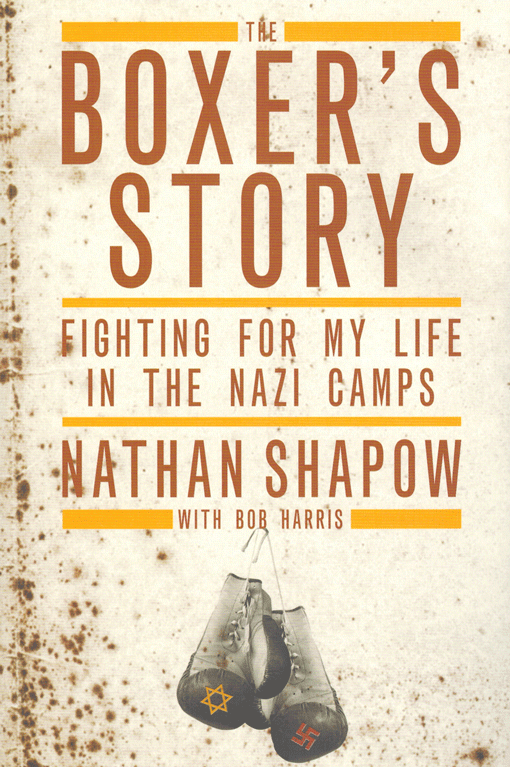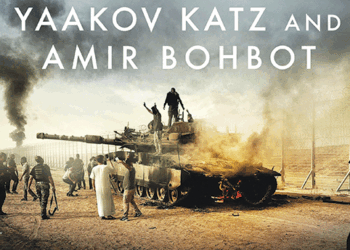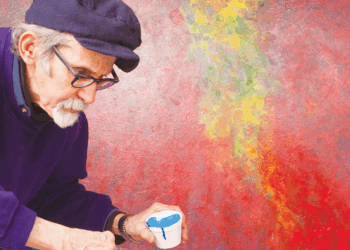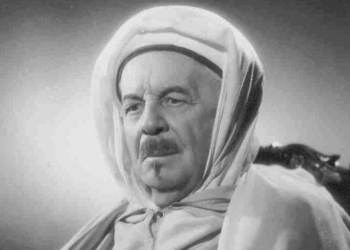The Boxer’s Story, by Nathan Shapow with Bob Harris, Robson Press, 246 pages, $24.95
Reviewed by NEAL GENDLER
Nathan Shapow’s happy marriage may have been made in heaven, but wouldn’t have occurred without concentration-camp hell.
Postwar, Shapow was engaged to an Israeli, but when he asked, she said she couldn’t live with someone who woke up sweating and screaming.
Soon after, he married young survivor Hela. “We could understand each other’s nightmares,” he says.
The Boxer’s Story is Shapow’s memoir, with sportswriter Bob Harris, who was able to confirm some of Shapow’s improbable-sounding experiences. The too-brief but engaging book begins by revealing a secret he kept even from Hela: He killed an SS lieutenant in the Riga ghetto, the consequences of which have haunted his life.
Shapow, born in 1921, was the oldest of three sons. He joined Jabotinsky’s Betar, later a liability when trying to reach, then work in Labor-controlled Israel.
“My chief interest was sport,” Shapow says. “My great passion was boxing,” which Betar encouraged. It saved his life: As the SS lieutenant drew his pistol, Shapow beat him unconscious, then killed him. Boxing also brought revenge in Israel when he ran into the Jew who sold his family fake tickets to Palestine in 1939, also taking the family’s savings.
The Shapows first tried aliya in 1936, but were turned back in Beirut by the British. Soon, the father went alone. He sent for his family in 1939, only to have it swindled. Nathan, 14, had quit school to support the family. His middle brother was drafted by the USSR, which occupied Latvia in 1940. The youngest disappeared with his mother during ghettoization and daily killing of Jews.
Shapow’s wartime boxing was in the ghetto, where he excelled at stealing food while working in a warehouse. Caught with a coat full of food, he was beaten severely and arrested. He was saved by a ghetto policeman – an ex-boxer who’d shared his loot. The policeman arranged a match between Shapow and a former middleweight champion — apparently among German Jews deported to Riga who, Shapow says, looked down on Latvian Jews. Shapow won, then won a rematch and then a bout with another German Jewish inmate.
Sport kept Shapow from death again. Prewar, he’d played soccer in mixed groups, becoming pals with Danny, an ethnic German. One day, Shapow and his ghetto work crew were driven to a Jewish cemetery and told to dig. An SS killing squad arrived. Its captain pulled Shapow from the condemned, took him to a remote area, revealed himself as Danny and boosted him over the cemetery wall.
Shapow survived a series of tough camps. Liberated, he made his own way to Palestine, joining Begin’s Irgun army. He fought the notorious battle of Deir Yassin and is unapologetic. He says the raid coincided with an at-last-successful attack on the nearby Castel, which dominated the Jerusalem-Tel Aviv highway.
It also followed a series of Arab attacks and the murder of a concrete-block factory’s night shift, the 14 bodies “cut to pieces by the Arabs” and stacked into a heap of unidentifiable small parts. “We knew the attack had come from Arab paramilitaries stationed in the nearby village of Deir Yassin,” he says. Shapow says he’s never read a word about the factory slaughter, “but I know it happened, because I was there.”
Shapow left active duty after the war, but repeated call-ups — including the 1956 Sinai campaign — hampered his business and left him worried for his family. “My whole adult life always had been in turmoil,” he said. “I had flirted with death too often.” In 1960 the family moved to America, eventually prospering in peace.
London-published Boxer contains some British spellings and terms. Its brevity requires readers to come with some knowledge, and a transposition has Israel accepting an armistice in 1984, not 1948.
The book includes, rather unusually, a well-told chapter by Hela, with Auschwitz information I didn’t know. In an afterword, Shapow’s son says his parents told their children little about what they had endured. He learned from eavesdropping and from hearing their nightmares.
***
Neal Gendler is a Minneapolis writer and editor
(American Jewish World 12.6.13)




















Mr Gendler
Just a line to thank you for your review. I found it fair and honest and, most importantly, you took the trouble to read the book thoroughly, unlike some of your fellow reviewers. Happily most have been positive but it always means so much more when you know someone has read the book and digested it. Just for your information I am conscious there are gaps but this was unavoidable as Nathan’s memory suffered with his advancing years. Sadly Hela died last year but Nathan , now ell into his 90’s, is still going strong and he and his family are delighted with the book and the response.
Regards
Bob Harris